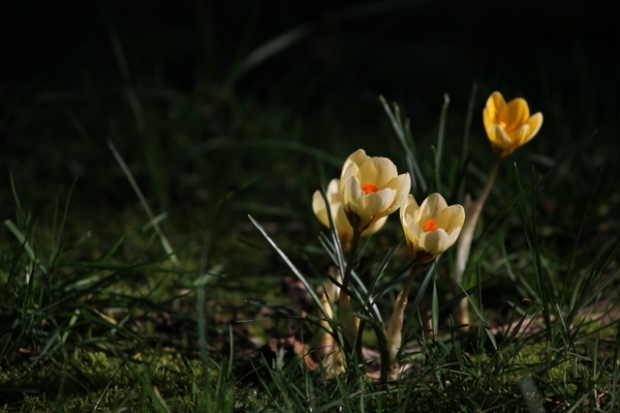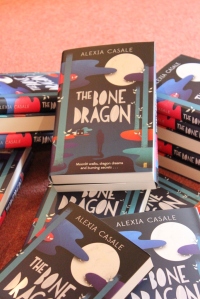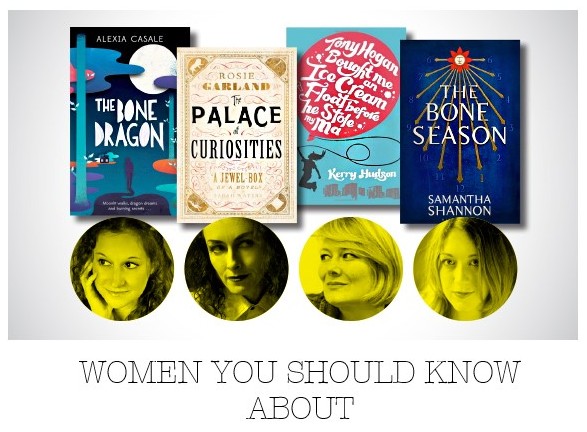Big, big thanks to Jade Ngengi for tagging me for the MEME: you can read her post from last week here.
What am I working on?
New Book (aka HoW) is a YA literary contemporary novel as opposed to a psychological thriller, though I will be returning to that territory in future books… along with historical fiction and fantasy.
New Book goes into partial-manuscript submission today, so I’m really hoping it finds a happy home to provide some security as I finish it. In any case, potential disasters aside, I’m hoping to have a full manuscript in May or June. Which means I need to get my skates on!
To be fair, I’m feeling fairly calm about the rest of the draft. The start of the book was slow and dreadful, as it so often is for me – and I was fully expecting this to be more so than normal for various Reasons, not least how long this book has been in the works. I started working on the first incarnation of this story when I was 13. You’ll be relieved to hear that it’s changed substantially since then. I’ve written several novel-length versions over the years, but I decided to set these aside and start from scratch. I know so much more now as writer. I think I can finally tell this story as it should be told.
It’ll be weird to have a definitive version, but I’m looking forward to having it out of my head after all this time. I wonder what will creep into the void it will leave?
As for the book itself, it’s set in Cambridge and focuses on the University. Cambridge is one of my favourite places on earth. I did my first two degrees there and also worked as a researcher in a super-exciting, though short-lived, cutting-edge multi-disciplinary department.
Cambridge is beautiful in the way that all the best fairytales are: full of wonder, magic, and cruelty. It’s for everyone to visit, but as a place to live – and especially to study – it really is not for everyone. Even if you had the chance, you might not be willing to give up what you have to in order to obtain what Cambridge can give you. Most of us don’t know we’re making a trade until it’s done – and afterwards it isn’t possible to imagine going back and choosing otherwise. But ultimately Cambridge is the place where I first fell in love and where I finally had the scope to be who I was.
How does my work differ from others of its genre?
This is such a hard question. I guess part of the answer is that I almost always write across genre boundaries. This is becoming progressively more common – and is something that YA is brilliant at accommodating, so a great category for me to publish in – but it’s still far from the norm.
I don’t do this on purpose. For a start, it makes books harder to market and what author wants that? It just seems to be how my brain works. I’m interested in how things intersect and interact at all levels, from the characters to the themes, and that spills over into the way my work tends to blur genre boundaries.
As an academic, one of my areas of interest in Literature is the intersection of fact and fiction. But I also have degrees in Psychology and Education, plus years of professional experience working as a consultant in the theatre and human rights fields, so diversity of interests is one of my ‘hallmarks’ as a person. The world is too big and amazing to stick to just one thing, even in a single book. The whole point of imagination is not to be stuck with the mundane limits of the real world: why would I want to bottle myself into just one category of daydreaming for my books?
The other part of the answer is that a lot of my work reflects my interest in human rights and the ethical issues attendant in writing fiction. I believe that difficult subjects can (and often should) be rendered in harrowing terms, but I’m doubtful that they ever need be graphic, especially if the subject matter concerns sexual violence and exploitation.
I also think we need to be very careful, as writers, to do our homework properly when we write about ‘real’ events in real locations that are happening at the present time. This is a great subject for fiction, but if you’re going to tackle it you first need to be prepared to do what it takes to know what you’re talking about. Part of this is ensuring that you don’t inadvertently do harm.
For instance, I think that writers who write about torture should be wary of lending weight to common misconceptions, especially the popular but inaccurate belief that torture produces reliable information that, under some circumstances, can mean that torture is ‘the lesser of two evils’. The research shows that information obtained under torture is often inaccurate and unreliable to the point where it may do more harm than good in a crisis. If we tell our readers (implicitly or otherwise) that we’re reflecting reality, then we should do it accurately, especially when this gives us opportunities to do good as opposed to harm: if we choose to write about torture happening in a real life context at the present time, we should also take an ethical stance in showing that not only should we not torture because it’s a terrible evil but because it is often purposeless and counter-productive. I’ve written about this at length over on Oh, The Books! in relation to Wein’s Code Name Verity, which I think does a really good job in this regard.
There are lots of other related ways that I think writers should take care. After all, taking care doesn’t mean being limited. But if you’re going to write about real events in real places happening in the here and now, there’s no excuse for not knowing the facts before you decide if you want to follow them or go where your imagination takes you.
Why do I write what I do?
See above! I suppose the extended answer is that I try to write about the worries and dreams that fill my head but that I don’t see reflected in the pages of existing books. I don’t try to be unique – this is almost always disastrous: the source of unmitigatedly awful and arrogant work. Instead, I try to recognise how I am already unique. For instance, the unusual combination of my areas interest and professional expertise mean certain common narratives jump out at me as suspect.
In The Bone Dragon, I challenge the idea that it is always a psychologically-healthy thing for victims of violent crimes to speak in detail about their experiences. Evie does give a report to the police, but she chooses never to discuss her past in the same level of detail with her friends, parents, teachers or even counsellors. For many people, ‘speaking out’ is extremely helpful and I’m not trying to dissuade people from doing it when they think they will benefit. But some people, like Evie, recognise that they don’t need or want to do this: it’s not helpful to them to ‘talk it out’ by rehashing all the horrid details. Making a report to the police is harrowing but Evie chooses to do it because she recognises that she has a responsibility to try to protect others. But, this responsibility fulfilled, she makes the choices that best protects her and her recovery. And, for Evie, that is to remain silent about the things she will never be able to face if they’re put into words.
Some things should never be said. Not out loud in clear, simple words. You talk around them. You leave gaps and blanks. You use other words and talk in curves and arcs for the worst things because you need to keep them like mist. Words are dangerous. Like a spell, if you name the mist, call out all of the words that describe it sharp and clear, you turn it solid, into something that no one should ever hold in their hands. Better that it stays like water, slipping between yours fingers.
At the moment we’re surrounded by calls for victims to ‘speak out’, not just to the police but in general. While it is very important that victims do speak the police, we should be honest about how traumatic this is for the vast majority of people. We should be saying ‘Do it even though it’s going to be hard and awful: you’ll feel wretched afterwards, but you’ll also feel like you were strong enough to do the right thing.’ We should also tell people to ‘Speak out if you want to: but take a moment to think about it first. There should be no pressure to share anything with anyone but the police unless you think it’s going to help you.’
That’s the truth of the situation, or at least my understanding of it. But that is NOT the current popular narrative. The Bone Dragon isn’t about ‘correcting’ the current view. But it is about putting a more nuanced, complex version of the truth out there. When I see lies or part-truths in popular narratives (and by narratives I’m not just talking about fiction), I want to do my part in challenging them – but not by jumping up and down and saying ‘Wrong! You’re wrong, wrong, wrong!’ (well, sometimes I feel like this but I try not to do it as it never gets anyone anywhere). Instead I try to say ‘Here’s the complex question behind this thing you’re currently being told is a simple statement of fact: now go away and figure out your own answer.’
How does my writing process work?
I’m a planner. If I don’t have almost every detail of a book planned out in advance, I don’t know it well enough to write it properly. I like being able to focus on language, not just at the sentence-level but at a structural level: it’s hard to do that when you’re also figuring out the plot as you go. Planning means I can focus on making the plot more interesting at a micro-level during writing, ‘opening the gap’ as Robert McKee calls it, by trying to weave little surprises into each scene: the thing that drives to the heart of a character or a relationship by being a ‘truer’ version of what the reader is expecting.
As I mentioned above, the start of a book is often grinding and slow. Well, the first page is usually lovely fun then I go back the next day and tear my hair out over it. Then follows about 15,000 words that are pure grind. I write and rewrite, and edit and re-edit my first few pages at least once a day. And then suddenly the language-structure of the book starts to take shape: I have enough material to know how to tell the story on the page. After that, if I can’t write more than 2500-3000 words per day, even on a not-so-good one, then something is wrong with the plan I’ve made. Assuming everything’s going OK, after the halfway mark, things speed up even further and I can expect to write at least 3000-4500 words a day. During the last quarter of the book I usually write over 4500 words per day, sometimes as many as 8-9000.
Of course, like most writers, I can’t write all day every day: not only does other work intrude (aka ‘paying the bills on time’) but so does life. I have yet to discover a magical creature willing to do my laundry or shopping or general household stuff and junk. And then there’s the little matter of all the people I love who I want to talk to and email and visit. Otherwise I would hole up in my attic study and not emerge for about a month. I did that as a teenager when I was learning how to write full-length novels: after about 25 days I’d emerge even more crazy than normal but with a book. Maybe not a publishable book, but a book all the same. And that was a great place to start. It gave me the practice needed to build up my stamina for the effort of trying to write 300 pages that aren’t just halfway decent but, hopefully, worth publishing.
Tag Lauren James, fellow member of Claire’s Coven (i.e. represented by the brilliant Claire Wilson of the RCW Literary Agency).
Lauren James is a Physics and Chemistry student and YA writer. She writes about romance and time travel and reads everything she can get her hands on. Her novel The Red Earth Rolls is being published by Walker in 2015. She blogs at http://southfarthing.tumblr.com.













